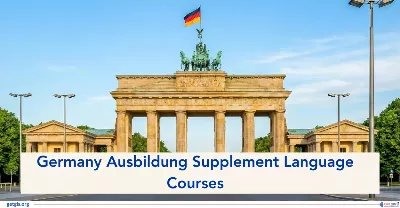Job Seeker Visa vs Work Visa: What are the Key Differences?
Updated On
-
Copy link
-
-
Discover the key differences between a Job Seeker Visa and a Work Visa through this guide. While the Job Seeker Visa allows you to look for work, the Work Visa lets you start working immediately with a job offer.
Limited-time offer : Access a free 10-Day IELTS study plan curated for you

Table of Contents
When comparing Job Seeker Visa vs Work Visa, it is important to understand the different purposes and advantages of the two types of visas. A Job Seeker Visa allows you to enter the country for job searching without needing to have a job offer beforehand. Countries like Germany, Sweden, and the UAE offer such visas, providing professionals with the opportunity to explore job markets and attend interviews.
A work visa, on the other hand, is issued when an applicant has a confirmed job offer with an employer in the country. The work visa allows for immediate work authorisation and is connected to the specific job and employer of the applicant. Understanding these differences is important for professionals who are planning their international careers. Let’s explore the details to make the right choice for your career.
Job Seeker Visa vs Work Visa: Understanding the Visa Types
We are familiar that both the Job seeker visa and Work visa might have different requirements and purposes. Let us first check out the detailed information about what is a job seeker visa or a work visa.
What is a Job Seeker Visa?
A job seeker visa is a temporary permit that allows professionals to explore employment opportunities in foreign countries within a period of time. Countries like Germany, Sweden, Austria, and the UAE offer job seeker visas to skilled professionals who have certain qualifications and experience.
| Country | Duration | Cost |
|---|---|---|
| Germany Opportunity Card | 1 year | €75 (INR 6,840) |
| Sweden | 6 months | SEK 1,500 (INR 11,975) |
| Austria | 6 months | €150 (INR 13,679) |
| UAE | 60 to 120 days | AED 1,495 (INR 34200) to AED 1,815 (INR 41521) |
Also Read:��Top 5 Job Seeker Visa Countries: A Destination Beyond Borders
What is a Work Visa?
A work visa is specifically for those people who already have secured a job offer in a foreign country. This visa allows you to work for an employer and live in the country for the specific duration of your employment. Sometimes it may also lead to a permanent residency depending on the country.
Countries like Germany, Sweden, Austria, UAE, and more offer work visas. Different countries have different specifications and rules for the visa. You can get the details below.
| Country | Types of Work Visa | Duration | Requirements |
|---|---|---|---|
| Germany | EU Blue Card, Employment Visa | Up to 4 years | Job offer, educational qualification, proof of salary |
| Sweden | Sweden Work Permit | Up to 2 years | Job offer, proof of salary, health insurance |
| Austria | Red-White-Red Card | Up to 2 years | Point-based eligibility (minimum 55 points), job offer |
| UAE | Standard Work Visa | Up to 2 years | Job offer, employer sponsorship |
Quick Reads:��Which Country is Easy To Get a Work Visa For Indians
Job Seeker Visa vs Employment Visa: Key Differences
Job seeker visas and work visas have some distinct differences. Here are the details for the job seeker visa vs work visa:
| Aspects | Job Seeker Visa | Work Visa |
|---|---|---|
| Purpose | Search for employment | Starting employment with an employer |
| Job Offer | Not required | Mandatory before applying |
| Eligibility | Educational qualification, proof of funds, work experience | Job offer, work experience, proof of funds, healthcare certificate, proof of language |
| Employment Rights | Not allowed to work until visa is converted to a work visa | Allowed to start working immediately |
| Validity | Up to 6 months | Depends on the employment contract |
| Conversion | Must be converted to a work visa after getting a job offer | No conversion is needed unless changing the employer |
| Ease of Application | Easier but might face uncertainty if no job offer is received | Requires confirmed job and often a lengthy process |
Job Seeker Visa vs Work Visa: Country Wise Overview
Now that you have gained the general overview of the differences between Job Seeker Visa and Work Visa, let us explore few of the top countries that offer Job Seeker Visas to Indians and the specific benefits and differences between the Visa types
1. Germany Opportunity Card vs Work Visa
Germany offers two different options for international professionals who are considering working in the country, that are the Germany Opportunity Card and work visa. Each of these paths provides different benefits and purposes. The differences between the Germany Opportunity Card vs Germany Work Visa are as follows:
| Factors | Germany Opportunity Card | Germany Work Visa |
|---|---|---|
| Purpose | To search for employment in Germany | For individuals with a job offer |
| Eligibility | Point-based system (educational qualification, age, language skills) | Job offer, educational qualification, proof of salary |
| Job Offer Requirement | No, allows you to look for a job after arrival | Yes, required before applying |
| Duration | 1 year | Based on the employment contract |
| Language Requirement | A1 level in German or B2 level in English | Not required but proficiency helps |
| Academic Requirements | Minimum 2 years of professional training and university degree | Recognized degree or vocational training |
| Age Limit | Under 40 years | No age limit |
Also Read: ��A Guide to Germany Work Visa Requirements
2. Sweden Job Seeker Visa vs Work Visa
Sweden offers two types of visas related to employment that are the job seeker visa and the work visa which is the Sweden work permit. Both visa types allow individuals to reside in Sweden with employment as their goal. The differences between Sweden job seeker visas and work visas are below.
| Factors | Sweden Job Seeker Visa | Sweden Work Visa |
|---|---|---|
| Purpose | Allows individuals to enter Sweden and look for jobs | For individuals with a job offer |
| Eligibility | Higher education degree, proof of funds | Job offer from a Swedish employer |
| Job Offer Requirement | Not required | Required before applying |
| Duration | 6 months | Up to 2 years |
| Language Requirement | No specific requirement | Not required but proficiency helps |
| Academic Requirements | Completed higher education | Recognized degree or vocational training |
| Age Limit | No age limit | No age limit |
Also Read:��Sweden Job Seeker Visa: Eligibility, Process & More
3. Austria Job Seeker Visa vs Employment Visa
If you are planning to move to Austria for work then there are two primary visa categories for you, the Austria job seeker visa and the work visa or the Red-White-Red card. These visas cater to a different set of circumstances. You can check out the details below.
| Aspects | Austria Job Seeker Visa | Austria Red-White-Red Card |
|---|---|---|
| Purpose | For individuals looking for jobs in Austria | Allows individuals to work for a specific employer |
| Eligibility |
|
|
| Job Offer Requirement | Not required at the application | Required before application |
| Duration | 6 months | Up to 2 years |
| Language Requirement | Not required | Not required, but proficiency helps |
| Academic Requirements | Higher education | Recognized degree or vocational training |
| Age Limit | No age limit | No age limit |
Also Read:��Things You Should Know About Austria Job Seeker Visa
4. UAE Job Seeker Visa vs Work Visa
UAE offers two distinct types of visas that are the job seeker visa and the work visa for individuals planning to work in the country. Both visas offer legal entry into the country for work purposes and have different roles and requirements. The differences between the UAE job seeker visa and the UAE work visa are as follows:
| Factors | UAE Job Seeker Visa | UAE Work Visa |
|---|---|---|
| Purpose | Allows individuals to look for employment in the UAE | Allows individuals to work for a specific employer |
| Eligibility | Must be at least 18 years old, educational qualification | Must have a job offer |
| Job Offer Requirement | Not required | Required before applying |
| Duration | 60 to 120 days | Up to 2 years |
| Language Requirement | No specific requirement | No requirement but proficiency helps |
| Academic Requirements | Bachelor’s degree or equivalent from a recognized university | Recognized degree or vocational training |
| Age Limit | No age limit | No age limit |
Job Seeker Visa or Work Visa: Which Visa Should You Choose?
The choice between a job seeker visa and a work visa depends mostly on your employment status and career aspirations.
- For People Without a Job Offer:
If you are skilled but do not have a confirmed job offer, a job seeker visa will allow you to discover the job market while staying in the host country. It is a perfect option for those who are confident in finding a job but need time to search.
- For People With a Job Offer:
If you have received a job offer in a foreign country, a work visa is the obvious option for you. The visa will allow you to start working immediately after you arrive in the host country. A work visa has more stability as it is linked to your employment.
Job Seeker Visa vs Work Visa: Which Would You Prefer to Apply?
A job seeker visa and a work visa both offer opportunities to work in a foreign country. However, the choice depends on your employment status, personal situation, and career aspirations. Carefully make your decision based on qualifications, employment prospects, and financial situation.
Working in a foreign can be a rewarding experience and choosing the right visa for that is one of the most crucial steps. To make the right decision on which visa to choose you can reach out to ����ÿ�մ��� to experience dedicated immigration assistance for all your immigration needs.
Suggested Readings
Limited-time offer : Access a free 10-Day IELTS study plan curated for you

Frequently Asked Questions
Can we work on a job seeker visa?
Which countries give job seeker visas?
Can a job seeker visa be extended?
What happens if my work visa expires?
Can I apply for permanent residency with a work visa?





